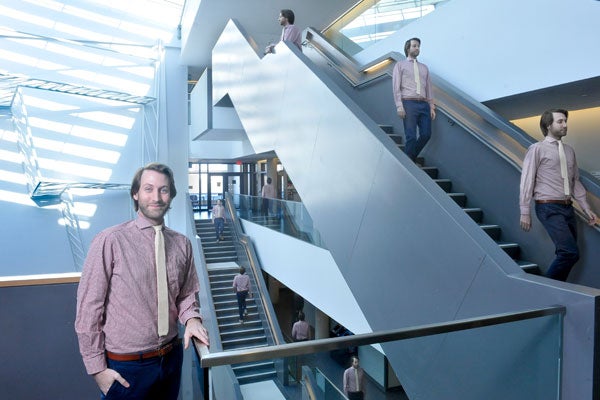
How far away do you think that finish line is?
Published: April 11, 2014
Why does the second hour of a journey seem shorter than the first? Why does the café 50 metres ahead of you feel closer than the one 50 metres behind you?
New research from the University of Toronto Scarborough and U of T's Rotman School of Management shows the answer has to do with how you're physically oriented in space.
In a series of six studies, Sam Maglio, an assistant professor in UTSC’s Department of Management, demonstrated that a person’s orientation – the direction they are headed – changed how they thought of an object or event.
“People move around their environments, constantly going closer to some things and farther from others,” says Maglio. “We wanted to see if this movement changed how people perceived their surroundings.”
Using everyday locations and objects such as subway stations, lottery draws and Starbucks drinks, Maglio and Evan Polman of the University of Wisconsin-Madison found people heading a certain direction considered the places ahead to be physically nearer than those behind, although the actual distance was the same.
People also felt events that occurred in the direction they were headed happened more recently and events would be more likely to occur.
Strangers who were coming towards participants were thought to be more similar to themselves than whether those same strangers were headed away. The feeling of closeness appeared when events were good or bad.
“Feeling close to or distant from something affects our behaviour and judgment,” says Maglio. “We feel more socially connected, more emotionally engaged, and more attuned to the present when something is perceived as close.”
This new study adds a new dimension to our understanding of what leads to a feeling of closeness, he says. Previous studies have focused on changing objective measures such as distance or time to make something subjectively feel close or far.
Maglio says the research supports previous findings that something that feels close in one way, such as physical distance, will also feel close in time, probability and social similarity.
“That’s why a phrase such as A long time ago in a distant land makes more intuitive sense than in a nearby land.”
According to Maglio, this research could potentially affect business such as retail.
“Firms that induce a sense of orientation towards the customer might be able to create psychological closeness and connection.”
The research is published in Psychological Science, a journal of the Association for Psychological Science.



